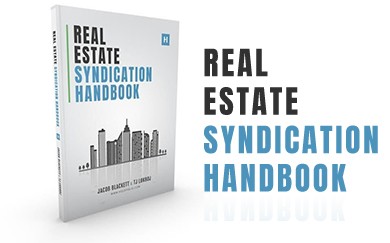THE PURCHASE OF LLC INTERESTS IS SPECULATIVE AND INVOLVES SIGNIFICANT RISK, INCLUDING THE RISK THAT YOU COULD LOSE YOUR ENTIRE INVESTMENT. THE PURCHASE OF LLC INTERESTS IS SUITABLE ONLY FOR INVESTORS WHO FULLY UNDERSTAND AND ARE CAPABLE OF BEARING THE RISKS. SOME OF THE RISKS ARE DESCRIBED BELOW. THE ORDER IN WHICH THESE RISKS ARE DISCUSSED IS NOT INTENDED TO SUGGEST THAT SOME RISKS ARE MORE IMPORTANT THAN OTHERS.
SPECULATIVE NATURE OF REAL ESTATE INVESTING:
Real estate can be risky and unpredictable. For example, many experienced, informed people lost money when the real estate market declined in 2007- 2008. Time has shown that the real estate market goes down without warning, sometimes resulting in significant losses. Some of the risks of investing in real estate include changing laws, including environmental laws; floods, fires, and other acts of God, some of which may not be insurable; changes in national or local economic conditions; changes in government policies, including changes in interest rates established by the Federal Reserve; and international crises. You should invest in real estate in general, and in the Company in particular, only if you can afford to lose your investment and are willing to live with the ups and downs of the real estate industry.
NO GUARANTY OF DISTRIBUTIONS:
When you buy a certificate of deposit from a bank, the Federal government (through the FDIC) guarantees you will get your money back. Buying an LLC Interest from the Company is not like that at all. The ability of the Company to make the distributions you expect, and ultimately to give you your money back, depends on a number of factors, including some beyond the control of the Company. Nobody guarantees that you will receive distributions.
INABILITY TO ATTRACT AND/OR RETAIN TENANTS:
Our success depends on our ability to attract and retain tenants in our Rental Properties. The risks we face include the following:
- Competition from other landlords could keep us from raising rents.
- Changes in economic conditions generally, or in the Indianapolis, IN and Dayton, OH areas in particular.
- Existing tenants might not renew their leases.
- Our Rental Properties could remain vacant for extended periods.
- A tenant could default on its obligations, or go bankrupt.
- Certain of our properties may be specifically suited to the needs of a certain type of tenant and we may have difficulty leasing such properties in the event of a vacancy.
Any of these circumstances would hurt the Company financially. If a vacancy continues for a long period of time, we may suffer reduced revenues resulting in less cash available to be distributed to shareholders. In addition, the resale value of a property with vacancies could be decreased because the value of a property may depend on the value of the leases of such property.
NEED TO RENOVATE PROPERTIES:
We might need to renovate our Rental Properties to make them competitive in the market. The more we have to spend to renovate our Rental Properties (assuming we can find the capital to do so), the lower the returns to our investors.
PROPERTY VALUES COULD DECREASE:
The value of the Rental Properties we own could decline, perhaps significantly. Factors that could cause the value of our Properties to decline include, but are not limited to:
- Changes in interest rates
- Competition from new construction
- Changes in national or local economic conditions
- Changes in zoning
- Environmental contamination or liabilities
- Changes in local market conditions
- Fires, floods, and other casualties
- Uninsured losses
- Undisclosed defects in property
- Incomplete or inaccurate due diligence
ILLIQUIDITY OF REAL ESTATE:
The Company might not be able to sell Rental Properties as quickly as or on the terms that it would like. For one thing, we cannot predict how long it will take to find a willing and able buyer. For another thing, we might be required to expend significant amounts of money to correct defects or make improvements before a property can be sold. The overall economic conditions that might cause the Company to want to sell Rental Properties are generally the same as those in which it would be most difficult to sell.
OPERATING EXPENSES:
The costs of operating real estate – including taxes, insurance, utilities, and maintenance – tend to move up over time. We have limited control over some of our operating costs, and if our costs increase it may reduce the amount available for distribution to investors.
REGULATION AND ZONING:
Like all real estate, our Rental Properties are subject to extensive building and zoning ordinances and codes, which can change at any time. Changes in these laws and regulations could affect the Company adversely.
CASUALTY LOSSES:
A fire, hurricane, mold infestation, or other casualty could materially and adversely affect the operation of the Company, even if the Company carries adequate insurance.
UNINSURABLE LOSSES:
The Company will maintain insurance against certain kinds of losses, such as losses from fires. However, there are certain types of losses which either cannot be insured at all or cannot be insured for a reasonable cost.
LIMITED WARRANTIES FROM SELLERS:
In most cases, the Company will be required to purchase a property in “as is” condition, with few if any representations or warranties by Seller. If we learn that a property has defects after closing, we may not be able to look to the seller for reimbursement.
LIABILITY FOR PERSONAL INJURY:
As a landlord, we might be sued for injuries that occur in or outside our Properties, e.g., “slip and fall” injuries. Although we expect to carry insurance against potential liability in amounts we believe are adequate, it is possible that we could suffer a liability in excess of our insurance coverage.
ENVIRONMENTAL RISKS:
We will conduct typical environmental testing on the properties we acquire to determine the existence of significant environmental hazards. However, it is impossible to be certain of all the ways that the properties have been used, raising the possibility that environmental hazards could exist despite our environmental investigations. Under Federal and State laws, moreover, a current or previous owner or operator of real estate may be required to remediate any hazardous conditions without regard to whether the owner knew about or caused the contamination. Similarly, the owner of real estate may be subject to common law claims by third parties based on damages and costs resulting from environmental contamination. The cost of investigating and remediating environmental contamination can be substantial, even catastrophic.
ADA COMPLIANCE:
The Americans with Disabilities Act of 1990 (the “ADA”) requires certain buildings to meet certain standards for accessibility by disabled persons, and we may be required to comply with its terms. If our Rental Properties are not compliant with all requirements of the ADA or if additional requirements are imposed in the future, whether pursuant to the ADA or otherwise, we would need to make modifications to those Properties, potentially at significant expense.
THE COMPANY IS A NEW BUSINESS WITH A LIMITED TRACK RECORD:
The Company is a new business with a limited track record, making it difficult for Investors to gauge our investment strategy. Like any new business, we face challenges on a number of fronts, including:
- Developing a reputation and brand identity
- Attracting, retaining, and motivating qualified executives and personnel
- Implementing business systems, including technology systems
- Raising capital
- Controlling costs
- Responding effectively to the offerings of existing and future competitors
- Managing growth and expansion
- Implementing adequate accounting and financial systems and controls
There is no assurance that we will be successful on all (or any) of these fronts.
INCOMPLETE DUE DILIGENCE:
We intend to perform “due diligence” on each Rental Property we buy, meaning we will seek out and review information about the property. However, due diligence is as much an art as a science. As a practical matter, it is simply impossible to review all of the information about a given piece of real estate and there is no assurance that all of the information we will review will be accurate or complete in all respects. For example, sometimes important information is hidden or simply unavailable, or a third party might have an incentive to conceal information or provide inaccurate information, and we cannot verify all the information we receive independently. It is also possible that we will reach inaccurate conclusions about the information we review.
LACK OF DIVERSIFICATION:
We will own a limited number of Rental Properties in a select market and in a concentrated geographic location, or to put it another way, our portfolio of real estate will not be “diversified.” The diversification of a portfolio reduces both volatility and risk, which means that our portfolio is likely to be more volatile and more risky than if we had purchased a greater number of properties, purchased properties in geographic locations outside of Indianapolis, IN and Dayton, OH, or invested in properties outside of residential market (e.g., commercial properties).
UNRELIABLE FINANCIAL PROJECTIONS:
We have prepared financial projections reflecting what we believe are reasonable assumptions concerning the conduct of our business. However, the nature of real estate development and investment is such that at least some of our assumptions are likely to be mistaken, either for better or for worse, so that the actual results of investing in the Rental Properties are likely to be different than the results reflected in the projections, possibly by a wide amount. Investors should be skeptical of financial projections in the real estate industry, not because developers intend to be misleading but because the industry is so volatile and difficult to predict.
PRICING OF ASSETS:
The success of the Company and its ability to make distributions to Investors depends on its ability to gauge the value of real estate assets. Although the Manager will rely on various objective criteria to select properties for investment, ultimately the value of these assets is as much an art as a science, and there is no guaranty that the Company and its advisors will be successful.
RISKS ASSOCIATED WITH DEVELOPMENT AND CONSTRUCTION:
We might renovate or repair our Rental Properties from time to time, as needed and if consistent with our overall investment strategy. Development and construction can be time-consuming and are fraught with risk, including the risk that projects will be delayed or cost more than budgeted.
RELIANCE ON MANAGEMENT
: You will not have a right to vote or otherwise participate in managing the Company, except on very limited matters. Instead, the Manager, along with its affiliate Sonder Homes (our property manager), will have full control over the business and management of the Company. As a result, the success of the Company – and its ability to make payments with respect to your LLC Interests – will depend almost exclusively on the skills of our Manager and its principals. Therefore, you should purchase an LLC Interest only if you are willing to rely on the ability and judgment of management and these third-party operators. If the principals of our Manager resign, die, or become ill, the Company and its Investors could suffer.
RISKS ASSOCIATED WITH LEVERAGE:
The Company may borrow money from banks or other lenders to refinance Rental Properties, purchase assets, or to finance development costs or other expenses. Borrowing money to purchase assets is sometimes referred to as “leverage.” While using leverage can increase the total return on the borrower’s equity, it also increases risk because the amount borrowed has to be repaid in accordance with a schedule. To repay its loans, the Company might have to sell assets at a time when values are low, for example.
BREACHES OF SECURITY: It is possible that our systems would be “hacked,” leading to the theft or disclosure of confidential information you have provided to us. Because techniques used to obtain unauthorized access or to sabotage systems change frequently and generally are not recognized until they are launched against a target, we and our vendors may be unable to anticipate these techniques or to implement adequate preventive measures.
NO MARKET FOR THE LLC INTERESTS; LIMITS ON TRANSFERABILITY:
There are at least three obstacles to selling or otherwise transferring your LLC Interest:
- There will be no public market for your LLC Interest, meaning you could have a hard time finding a buyer.
- The Operating Agreement prohibits you from transferring your LLC Interest without the consent of the Manager.
- By law, you may not sell your LLC Interest unless it is registered under applicable securities laws or the transfer is eligible for an exemption from registration.
Taking all that into account, you should plan to own your LLC Interest indefinitely.
NEED FOR ADDITIONAL CAPITAL:
The Company might need more capital, whether to renovate one or more Rental Properties, to acquire additional properties, to carry the Company through periods when our rental income is insufficient to cover our operating expenses, to pay for uninsured losses, or otherwise. We might seek to raise additional capital through debt (borrowing money) or through equity (selling interests in the Company) or both. However, there is no assurance that additional capital will be available at the time it is needed, and if the Company needs but cannot obtain additional capital it is possible that the Company could fail. Even if additional capital is available, it could be on terms that are adverse to the interests of the Investors. A loan, for example, could bear a high interest rate or other onerous terms, while raising additional capital in the form of equity could dilute the interests of the Investors.
SUBORDINATION TO RIGHTS OF LENDERS:
The right of Investors to receive distributions from the Company is subordinate to the rights of the Company’s lender(s). In the event the Company were to default in its obligations to the lender(s), the Company might be prohibited from making further distributions to the Investors until the default had been cured.
LACK OF CASH TO PAY TAX LIABILITY:
The Company will be treated as a partnership for tax purposes. Consequently, your share of the taxable income from the Company (if any) will be reported on your personal income tax return. We will try to distribute enough money for you to pay your personal tax liability on your share of the income, but we might not have enough money to do so. In that case, you could have a net cash deficit from owning an LLC Interest.
NO REGISTRATION UNDER SECURITIES LAWS:
The Company and the LLC Interests will not be registered with the Securities and Exchange Commission (“SEC”) or the securities regulator of any State. Hence, neither the Company nor your LLC Interest is subject to the same degree of regulation, scrutiny and disclosure as if this offering were registered.
INCOMPLETE OFFERING INFORMATION:
The LLC Interests are being offered pursuant to Rule 506(b) issued by the SEC. Rule 506 does not require us to provide you with all the information that would be required in some other kinds of securities offerings, such as a public offering of shares. Although we have tried to provide all the information we believe is necessary for you to make an informed decision and we are ready to answer any questions you might have, it is possible that you would make a different decision if you had more information.
LACK OF ONGOING INFORMATION:
The Company will provide you with periodic statements concerning the Company, but it will not provide audited financial statements or other detailed information that you might receive in a securities offering registered with the SEC.
CONFLICTS OF INTEREST:
Your interests as an Investor could conflict with our interests in a number of important ways, including these:
- Your interests might be better served if our management devoted its full attention to the Company. Instead, the principals of our Manager will be managing a number of different projects concurrently with the Company.
- The principals of our Manager are also the principals of Sonder Homes, our property manager, which will receive fees from the Company. Although we will always seek to establish terms that are fair to the Company, the terms of any compensation or other agreements with Sonder Homes were negotiated between related parties, and therefore may not be as favorable to us as if they had been negotiated at arm’s length.
- The principals of our Manager may be involved from time to time in other real estate ventures outside of the Company, and may be involved in purchasing and managing residential real estate projects in the vicinity of the Company. Therefore, they may be competing directly with the Company.
- The lawyers who prepared this Confidential Investor Disclosure Document, the Operating Agreement, the Purchase and Investment Agreement, and the other documents related to your investment in the Company represent JB Holding Company LLC – our Manager – not Investors or even the Company. You must hire your own lawyer (at your own cost) if you want your interests to be separately represented.
DETERMINATION OF FEES:
The Manager and its affiliates may receive significant fees and distributions from the Company. Although we believe that the fees are consistent with the types and amounts of fees for other real estate development funds, the fees were not determined through arm’s-length negotiations with the Investors, but were established by our Manager.
LIMITATION ON RIGHTS UNDER OPERATING AGREEMENT:
The Operating Agreement limits your rights in several important respects, including these:
- With a few exceptions, the Operating Agreement may be amended without your consent.
- The Operating Agreement significantly curtails the right of Investors to bring legal claims against the Manager and its principals. Among other things, the Operating Agreement eliminates (to the extent allowed by law) the fiduciary obligations that the Manager would otherwise have to the Members.
- The Operating Agreement limits your right to obtain information about the Company and to inspect its books and records.
- The Operating Agreement restricts your right to sell or otherwise transfer your LLC Interest.
LIMITATIONS ON RIGHTS ON INVESTMENT AGREEMENT:
To purchase an LLC Interest, you are required to sign our Investment Agreement. The Investment Agreement would limit your rights in several important ways if you believe you have claims against us arising from the purchase of your LLC Interest:
- In general, any legal claims brought against the Company or its principals must be brought in State or Federal Court in Indiana, which might not be convenient for you.
- You would not be entitled to a jury trial on your claims.
THE FOREGOING ARE NOT NECESSARILY THE ONLY RISKS OF INVESTING.
PLEASE CONSULT WITH YOUR PROFESSIONAL ADVISORS.

 Back to Blog
Back to Blog




